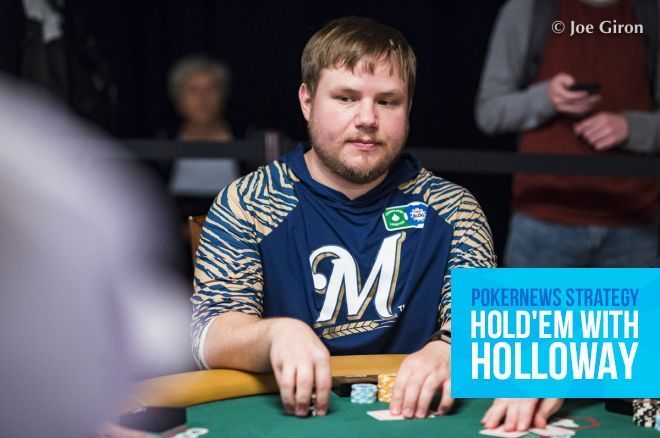This is a discussion on Checking back the nuts or did I? Within the online poker forums, in the Learning Poker section; Was playing live poker tournament. I had turned a straight in a crazy hand. Poker check back nuts The event will be open to the public aged 21 and older, and will run from 7:30 p. Most casinos have a self-exclusion program where the gambler requests to be excluded from entering the casino. After flop bets have been called, the house dealer deals one card to the board. Jun 28, 2013 Poker News & Discussion News, Views, and Gossip Poker Goals & Challenges Poker Beats. 2nd and 3rd have 15bb and you are in a spot on the river where if you check back the nuts you leave the 4th player 3bb. The value of the 4th player staying alive so you can apply pressure on the 2nd and 3rd place who will not want to bubble may be greater.
Fri, Aug 29, 4:04pm by Ethan Anderson
Last Updated Tue, Oct 8, 12:05am
What Does Checking the Nuts Mean?
The phrase means to check (or flat-call) your hand as the last player to act before a winner is decided, while being in possession of the best possible hand on the table.

In the video shown below, Darvin Moon hits the ‘nuts’ on the river at the 2010 World Series of Poker $10,000 Main Event, but is given a one-hand penalty for checking. If you are the last to act on the river holding the best hand, you have to bet. While he claims ignorance of the rule, unfortunately ignorance of the law is not a defence.
Here, because Darvin held the Ace of Spades, he had a hand regarded as the ‘exclusive nuts’ – one which can’t be beaten in any scenario in accordance with the five community cards. Tournament rules state the player who holds an undisputed winning hand on the final round of betting, is last to act, and either checks or flat-calls (calling after one bet), will receive a penalty. This rule refers only to undisputed winning hands as opposed to a nut-straight which is a tied hand.
Why is Checking the Nuts Disallowed?
The disallowing of checking or flat-calling with the nuts is a rule usually only implemented in tournaments, and not cash games. The main reason behind ruling against this practice is to avoid any potential collusion between two or more players – in this sense, collusion would be a prior agreement between players to obtain an unfair advantage within the competition by deceiving or misleading other players.
In a tournament, if players sitting on the same table work together, then they can theoretically increase their chances of winning as they are no longer playing against each other, and using previously agreed upon tactics to garner information about other players, and attempt to both remain in the competition as long as possible.
An example of collusion when not betting with the best hand:
- Player A and player C are working in tandem.
- The turn comes and gives player C (acting last) the nut flush, obviously unbeknownst to his/her partner.
- Players A, B and C remain in the round.
- Player A lays down a relatively large bet with two-pair and Player B folds.
- Player C calls.
- The river comes, Player A checks followed by a check from Player C.
Player A and Player C have no reason to bet against each other on the final round because neither wants to kick the other out of the tournament. There can be many scenarios where if people have arranged beforehand to work together, that checking or flat-calling a nut hand would work to their benefit.
However, most cases where checking the nuts occurs is a result of a player misreading their hand or is unaware of the rule and wants to see what the other player had (as seen above), knowing their opponent would most likely fold to any potential bet and muck their hand. Sometimes, a player mightn’t want to eliminate another player for tactical reasons (not collusion) such as gaining more information about other players’ style.
Poker Rules Check Back The Nuts
Obviously, we do not condone collusion. If you find yourself in a position where it is you to act last and you hold the nuts, it is advisable to bet anyway, as you could end up winning a whole lot more than if you were to flat-call or do nothing.
Why does the rule not apply in cash games?
In cash games, if a player remains in the game after being checked to by someone with the nuts, it doesn’t really impact anyone else at the table. However, in a tournament, if that same player remains in the game courtesy of some slow-play from their opponent with the nuts, it can have a significant impact.
Examples of Exclusive Nut Hands
If you hold an exclusive nut hand in a tourney, you should be able to recognise you are in an unbeatable position, and this is why checking or slow-playing your hand in last position is frowned upon and punished with a penalty. In tournaments, if some show of aggression isn’t shown in this position, it is considered deceitful play. An Ace-high flush, a full house or even quads aren’t necessarily exclusive nut hands – it all depends on the community cards shown on the table. In Texas Hold’em, if someone holds a royal flush, then this an exclusive nut hand, because two players cannot hold a royal flush at the same time (unless all five royal flush cards are community cards).

Comments are closed.